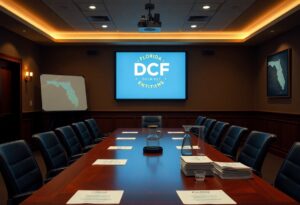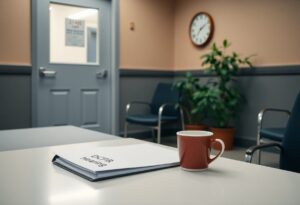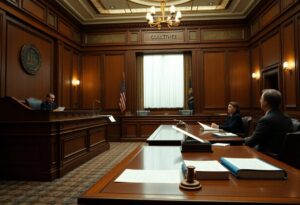How Do Anonymous False Reports of MA DCF Child Abuse and MA DCF Child Neglect Severely Harm Families?
The Massachusetts Department of Children and Families (MA DCF) c investigates false reports of child abuse and neglect just as seriously as real ones. Massachusetts law requires that DCF investigate every legitimate report they receive. A legitimate report is one that meets DCF’s criteria for abuse or neglect.
A legitimate report must also involve the actions of a parent or caretaker. Even when these reports are completely bogus and false, DCF must investigate the case. False reports to DCF are so harmful for families because they have the same consequences of real reports. If DCF believes the report is true even when it is actually false, they will still penalize the reported family.
Who Can Make a Report to DCF?
Anyone can make a report to DCF. Concerned family members, friends, or neighbors can call in a report if they suspect an incident of child abuse or neglect. These people would be considered non-mandated reporters. Mandated reporters (sometimes called “mandatory reporters”), such as teachers, doctors, and police officers are required by law to file a 51A report if they suspect abuse or neglect has taken place.
But DCF allowing everyone to report leads to false or unnecessary reports. Sometimes, it is an ex-spouse who wants to spite or get revenge on a parent. Other times, mandated reporters feel the need to file a report because they think if they don’t, they will lose their job.
What is MA DCF Child Abuse?
DCF defines child abuse as the following the non-accidental commission of any act by a caretaker upon a child under age 18 which causes, or creates a substantial risk of physical or emotional injury, or constitutes a sexual offense under the laws of the Commonwealth or any sexual contact between a caretaker and a child under the care of that individual. Abuse is not dependent upon location (i.e., abuse can occur while the child is in an out-of-home or in-home setting).” [110 CMR 2.00]
This means that child abuse occurs when a caretaker intentionally threatens or causes physical or emotional harm to a child. This includes sexual offenses or sexual contact with a child. This does not include accidents where the child got injured. If you mistakenly trip over a child or drop something on a child, DCF does not count that as child abuse.
What is MA DCF Child Neglect?
DCF defines child neglect as the following:
“[The] failure by a caretaker, either deliberately or through negligence or inability, to take those actions necessary to provide a child with minimally adequate food, clothing, shelter, medical care, supervision, emotional stability and growth, or other essential care; provided, however, that such inability is not due solely to inadequate economic resources or solely to the existence of a handicapping condition. This definition is not dependent upon location {i.e., neglect can occur while the child is in an out-of-home or in-home setting.)” [110 CMR 2.00]
This means that child neglect is a caretaker’s failure, regardless of intent, to provide their child with proper essential care. This includes necessities like food, shelter, and clothing. It also includes medical care, supervision and helping children grow and stay emotionally stable. There are exceptions, however. When a caretaker is unable to provide their child with these essential needs due to poverty or potentially a handicapping condition, then their situation would not be considered child neglect.
What Happens After False Reports of Child Abuse or Neglect?
A false report of child abuse or neglect is when a person files a 51A report without substantial evidence or reason to believe an incident of abuse may have occurred. This can happen due to many reasons.
Some people will intentionally file a false report against a parent because of another underlying personal issue. Perhaps an ex spouse files a false report against the other parent out of anger or making quick assumptions.
It is also common for people to mistakenly make a false report, simply because they did not have enough information. Some mandated reporters immediately assume the worst and ask the child leading questions which taints the truth of their situation.
Children are easily influenced, and it is vital that mandated reporters and social workers understand this when questioning them. In Massachusetts, anybody can file a 51A report anonymously, which unfortunately adds to the problem of falsely reporting abuse.
What Are the Consequences of False Reports?
Submitting false reports can have devastating consequences, not just for the accused but also for the integrity of the DCF process. For the reporter, making a false accusation can be punished by a fine of up to $2,000 for a first offense according to Mass. Gen. Laws ch. 119, § 51A (2020). For the parents accused, they risk losing custody of their children forever.
The family may face criminal charges or significant legal fees. Some parents or caretakers may even lose their job. Despite DCF’s screening process to try to prevent this from happening, it is still possible, which is why false reporting should not be taken lightly.
What Should Falsely Accused Parents Do?
As soon as you find out DCF is investigating you, you should seek representation.
You have the right to an attorney at any stage of your DCF case. You should have an attorney present with you when DCF questions you about the alleged incident(s) and inspects your home. Unfortunately, you as a parent cannot be present when DCF interviews your child or children.
An attorney, however, can be present for that interview. Having your attorney present with your family can keep DCF social workers in check. Your attorney will make sure your social worker is asking fair questions, and is not misrepresenting any information to you.
When Does DCF Decide to Investigate a Case?
DCF begins the screening process immediately after it receives a report to determine whether the allegations in the report meet DCF’s criteria of child abuse or child neglect. DCF will not investigate a “screened out” report. There are a few reasons why a 51A report might be screened out. DCF will screen out a report when it states a child has been abused by someone who is not their parent or caretaker.
DCF must the case will be to law enforcement. If the report contains extremely outdated information, DCF should screen out the report. In those situations, the child is probably not still experiencing abuse and is probably not in immediate danger. The most common reason for DCF to screen out a report is a lack of evidence for DCF to believe the allegations may be true.
If the report is approved for further investigation, it is “screened-in” and DCF begins conducting a thorough investigation. This happens even when the report is false. It is extremely important for parents to cooperate with the investigation, while knowing their rights. Do not let DCF take your children away due to a false report. Hire a lawyer experienced with DCF matters to protect you and your family.
![]() Kevin Seaver is a trusted Massachusetts DCF Lawyer Specialized in DCF since 1991.
Kevin Seaver is a trusted Massachusetts DCF Lawyer Specialized in DCF since 1991. ![]()
If your family is suffering because of false reports, you have the right to legal protection. DCF should not remove children based on misinformation, it’s advisable to seek legal representation from a qualified attorney, like those at the Law Office of Kevin Seaver, who can advocate for your rights and guide you through the complex process of a DCF investigation.
Remember that the ultimate goal of DCF is to ensure the safety and well-being of children while supporting families in crisis.
Please note that this article does not create an Attorney-Client relationship between our law firm and the reader and is provided for informational purposes only. Information in this article does not apply to all readers.
Readers should not rely on this information as legal advice and should seek specific counsel from the attorney based on personal circumstances. Thank you.
Kevin Patrick Seaver is a Massachusetts DCF Defense Lawyer who represents parents against false child abuse allegations.






